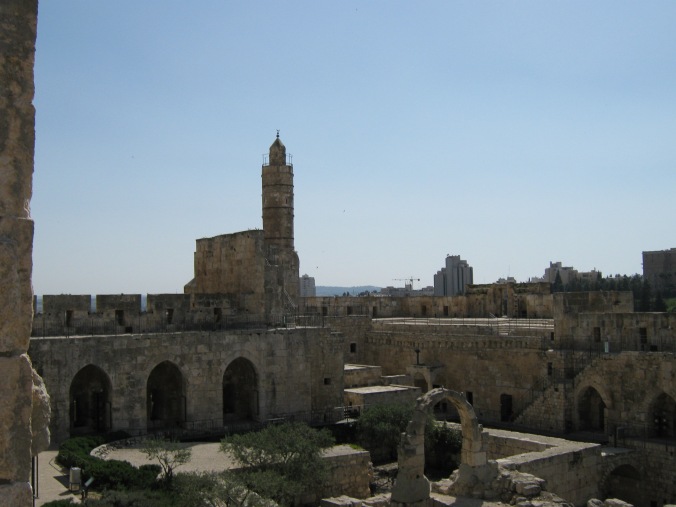A post from Imagining Jerusalem network member Michele Campopiano (University of York), on some of the upcoming activities of his project with the Universiteit van Amsterdam, ‘Cultural Memory and Identity in the Late Middle Ages: the Franciscans of Mount Zion in Jerusalem and the Representation of the Holy Land (1333-1516)’.
Call for Papers: An interdisciplinary conference: ‘Memory and Identity in the Middle Ages: The Construction of a Cultural Memory of the Holy Land (4th-16th centuries)’ (Amsterdam, 26 & 27 May 2016)
Session at the International Medieval Congress: ‘Memory, Identity, and Renewal in the Late Middle Ages: The Franciscans of Mount Zion in Jerusalem and the Representation of the Holy Land, 14th-16th Centuries’ (Leeds, 6 July 2015)
The Holy Land has played an important role in the definition of the identities of the so-called Abrahamic religions. Constitutive narratives about the past of Judaism, Christianity, and Islam were largely bound to this shared and contested space. As put forward both by Maurice Halbwachs and Jan Assmann, memory adheres to what is ‘solid’: it is stored away in outward symbols. The Holy Land is a focal point around which the shared memories of these different groups formed, and has been crucial for defining their identities. Our project: ‘Cultural Memory and Identity in the Late Middle Ages: the Franciscans of Mount Zion in Jerusalem and the Representation of the Holy Land (1333-1516)’ is trying to analyze the role of the Franciscans in the construction of a cultural memory of the Holy Land. In the Late Middle Ages, when pilgrimage to the Holy Land experienced an extraordinary blossom, the Franciscans welcomed, helped and guided pilgrims in the Levant. We also aim to place our research in a broader cultural and religious context. We have therefore organised two different meetings in order to stimulate further exchange of ideas among different scholars of the Holy Land. In chronological order, the first will be our session at the International Medieval Congress in Leeds: ‘Memory, Identity, and Renewal in the Late Middle Ages: The Franciscans of Mount Zion in Jerusalem and the Representation of the Holy Land, 14th-16th Centuries’ (Monday 6 July 2015).
We are however also organizing an interdisciplinary conference in Amsterdam (26 & 27 May 2016). With this conference, we are hoping to work with an even broader range of specialists in different disciplines and periods about the connection between the Holy Land as site of memory and the formation of religious and political identities from Constantine to the Ottomans. The contribution of specialists in Jewish and Islamic studies, as well as that of students of Eastern Christian Churches, is particularly welcome. The period between the age of Constantine and the late Renaissance was formative for constructing this memory. It saw the valorisation of Christian holy places under Constantine, the birth of Islam, the construction of an important Jewish scholarly community in the Holy Land, the Crusades, the massive growth of late medieval pilgrimage involving Jewish, Christian and Islamic groups, as well as other crucial events. The conference aims to bring together scholars who study the memories of the holy places within these religious galaxies from various disciplinary perspectives, in order to achieve a constructive exchange of ideas. Scholars of all so-called Abrahamic religions are invited to submit proposals, including scholars of Western and Eastern Christianity, Judaism and Islam. The call is open for historians, art historians, literary scholars, theologians, philosophers working on topics ranging from Late Antiquity to the Renaissance.
This conference is organised by me and the other members of the team of the research project ‘Cultural Memory and Identity in the Late Middle Ages: the Franciscans of Mount Zion in Jerusalem and the Representation of the Holy Land (1333-1516)’: Valentina Covaci, Guy Geltner and Marianne Ritsema van Eck. The project is funded by the Nederlandse Organisatie voor Wetenschappelijk Onderzoek (NWO).
We are looking for papers about 30 minutes long, and will be followed by 15 minutes of discussion. Participants are asked to send an abstract of 300 words to memory.and.identity.conference@gmail.com before 1 December 2015, together with information concerning their academic affiliation. Travel costs and two nights of accommodation will be financed by the project.
For further information, please download the call for papers here.
If you have other question about our session at the International Medieval Congress in Leeds or our Conference in Amsterdam, feel also free to contact me (michele.campopiano[at]york[dot]ac[dot]uk). All comments on this website are welcome: we are looking forward to engaging the broader public in our multidisciplinary research!
Michele Campopiano
University of York
Universiteit van Amsterdam


